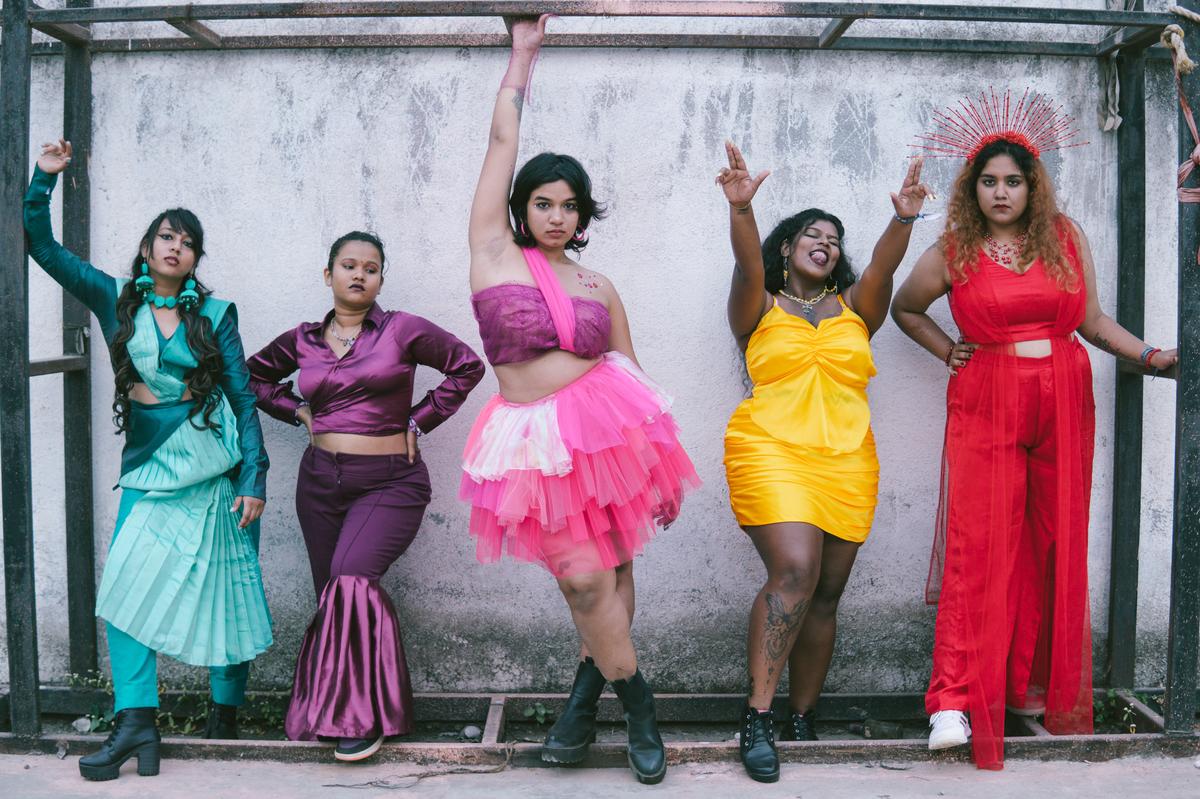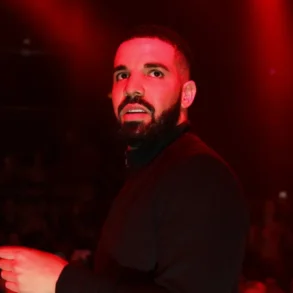Growing up, Ashwini Hiremath often visited her native place in Hubballi, Karnataka with her younger sister Vijaylakshmi or putti (meaning small in Kannada), as she is affectionately called. One of their antics as children included scaling a cupboard to reach the topmost shelf, where carefully folded saris belonging to an older family member were kept. Successfully pulling out a colourful sari from the rack, the siblings would take turns draping themselves in the fabric, mirroring their perception of “an authentic image of a woman”.
Years later, Ashwini, 29, known as Krantinaari on stage, is joined by four other women, clad in saris, spitting hard-hitting verses on stage to form Wild Wild Women. Believed to be India’s first all-female hip-hop band, this collective comprising five rappers — Krantinaari, HashtagPreeti (Preeti N Sutar), MC Mahila (Shruti Raut), JQueen (Jacquilin Lucas), and Pratika (Pratika E. Prabhune), two break-dancers, FlowRaw (Deepa Singh) and MGK (Mugdha Mangaonkar), a graffiti artist Gauri Dabholkar and a skateboarder Shruti Bhosle —is “regenerating and re-questioning” the hip-hop movement in India.
Since their inception in 2021, Wild Wild Women, based in Mumbai, has produced five singles and three tracks in collaboration with other artists. In their discography, right from their first single ‘I Do it for Hip Hop’, the crew has explored themes varying from women’s rights to mental health issues with verses in languages such as English, Hindi, Marathi, Kannada and Tamil. Accompanied by dance, art and skateboarding at times, the crew’s live performances only includes their original songs and tracks they have produced individually.
In 2023, Wild Wild Women performed in over 75 gigs and is currently gearing up to perform at the third International Independent Music Festival 2024, set to take place in Kovalam, Thiruvananthapuram, from November 22 to 24.
The emergence of Wild Wild Women, says Krantinaari, happened in a conversation between her and HashtagPreeti while enjoying a dosa after they met at an all-female street art festival in Mumbai called Ladies First. “We were discussing why are there no women in the cyphers (a gathering of rappers where they make music and freestyle lyrics),” she says.
Later, the duo would go on to call women they knew to meet up the coming Sunday without any expectations. However, this gathering eventually evolved into a WhatsApp group which ultimately became the hip-hop crew, Wild Wild Women. “The aim was to just make one video,” says HashtagPreeti. However, the response to the video was just the spark the collective needed to keep going.
For several band members, music was not part of their growing-up years. “No one in my family has any connection with music. But as a kid, I have always been a listener and a fan of different kinds of music. I never thought that I would be writing music or even rapping,” says HashtagPreeti, also an entrepreneur. Another rapper and the youngest in the crew, MC Mahila, 23, says, “Isolation in life started from college, I spent time alone and made a connection with music in that period; whatever I felt was expressed in a song or poem and in that process I realised I can write lyrics.” Rapper Krantinaari, who performed at the Roskilde music festival in Denmark in 2023, was a design student at IIT Bombay and later a Microsoft employee before she found her calling in music.
The crew also has members who were into music from a young age. Pratika, one of the rappers, has been a musician since ninth grade and used to perform with her brother as a teenager. “I grew up listening to heavy metal music and found rap through it, along with other popular music on TV. Rap is still one of the things that I find as an expressive medium,” says Pratika.

(from left) Krantinaari, MC Mahila, HashtagPreeti, JQueen, Pratika
| Photo Credit:
SPECIAL ARRANGEMENT
However, it has not always been smooth sailing for the artists irrespective of their backgrounds, with challenges ranging from the need to lead a double life before their parents to the misogynistic prejudices of their male counterparts. For rapper JQueen, it was only when her family saw the Wild Wild Women perform at her sister’s wedding, were they were accepting of rap music, says Krantinaari.
The collective also had to initially overcome the lack of trust from the male rappers who had the notion that women were looking at music as a hobby rather than as a career. “No one took interest in actually teaching the art and they were like, ‘anyways, you’re going to get married in four years’,” says Krantinaari, pointing out that they were taken seriously only with consistent efforts.
Wild Wild Women has also created a safe space for women to attend their gigs. “We are actually seeing more women in the first row of the audience,” says HashtagPreeti. She adds, “The more you encourage women to be on stage, the more the change you’ll see in the audience.”
Pratika says, “It is definitely a male-dominated space. By defying the norm, and by continuing to break boundaries, the women in hip hop, us included, will be a mainstay and something that will speak volumes, just like our music.”
The collective also aims to be inclusive for women of all age groups, and an attempt to convey this message is their choice of the sari as their performance attire. Hashtagpreeti says, “It was Krantinaari’s idea to wear sari on stage. In a sari, an Indian woman can relate to us more strongly, be it an old woman or a kid,” says HashtagPreeti.
Wild Wild Women will perform at the International Independent Music Festival 2024, at Kerala Arts and Crafts Village, Kovalam, Thiruvananthapuram, on November 24. Tickets available on insider.in
Published – November 13, 2024 04:04 pm IST
This post was originally published on this site be sure to check out more of their content.












Email
Remove
SEE ALL